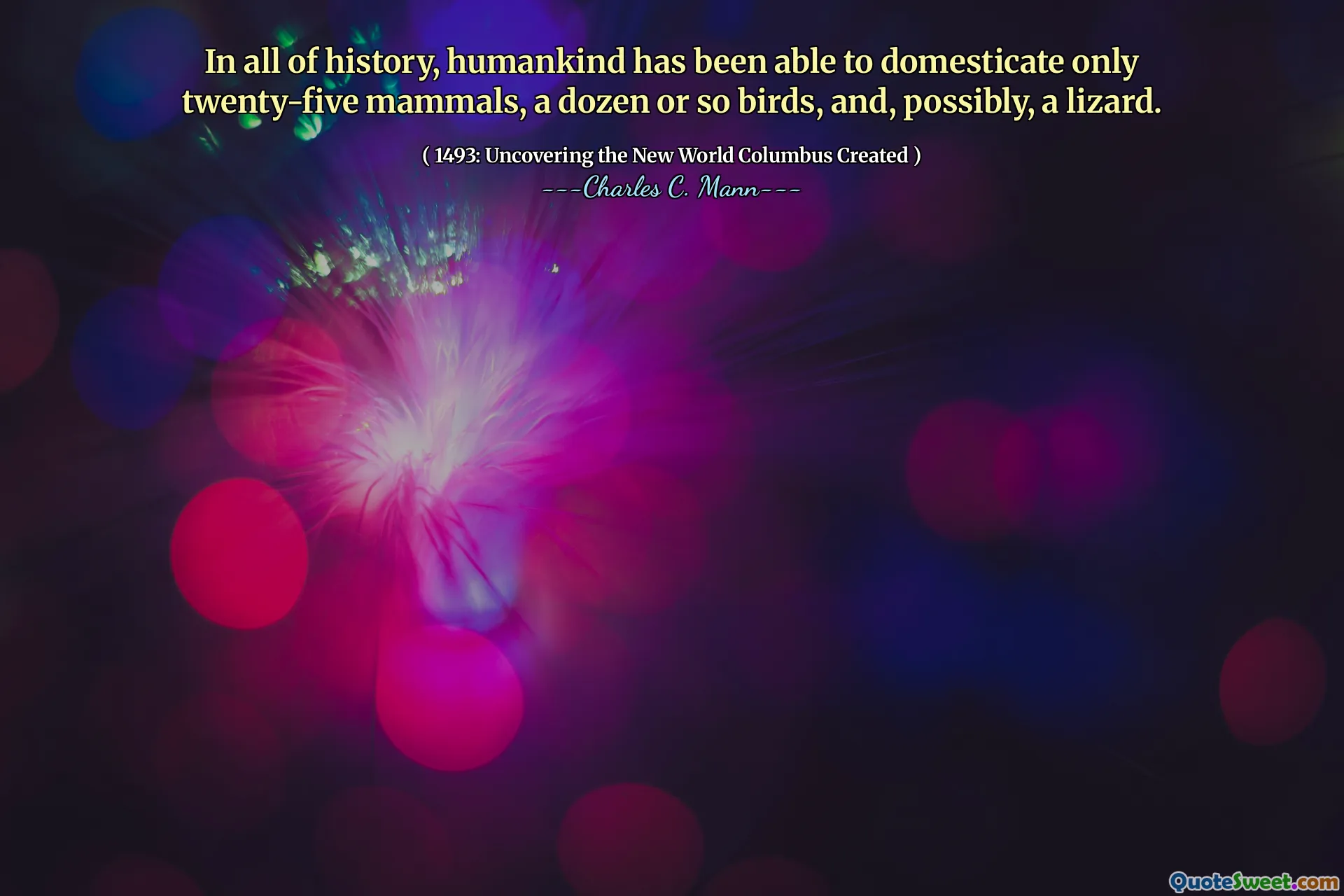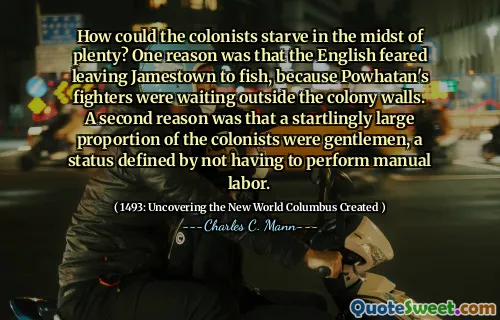
In all of history, humankind has been able to domesticate only twenty-five mammals, a dozen or so birds, and, possibly, a lizard.
📖 Charles C. Mann
This quote from Charles C. Mann's 1493: Uncovering the New World Columbus Created highlights a fascinating aspect of human interaction with the animal kingdom: the relatively limited scope of species that humans have successfully domesticated throughout history. Despite our species' incredible resourcefulness and adaptability, the list of animals that have become truly domesticated remains surprisingly short. This brings to mind the unique requirements and traits that animals must possess to be suitable for domestication—not just utility, but temperament, breeding cycles, diet, and social structure. It speaks to the complexity of domestication as an evolutionary and cultural process rather than a simple act of taming any wild creature.
Moreover, reflecting on this limited domestication informs our understanding of human history and civilization development. Domesticated animals have played pivotal roles in transportation, agriculture, companionship, and even warfare. The limited variety of domesticated species suggests specific evolutionary partnerships that shaped human societies and ecosystems. It also prompts appreciation for the animals that have become integral to human survival and culture, emphasizing the rarity and significance of each domesticated species.
Finally, by including "possibly a lizard," Mann hints at the ongoing and perhaps unprecedented attempts to explore new forms of domestication in modern times, demonstrating humanity’s continuous drive to manipulate and adapt natural resources to its needs. This quote wonderfully encapsulates the selective nature of domestication and invites deeper inquiry into the ecological and cultural dynamics that have shaped human history.







